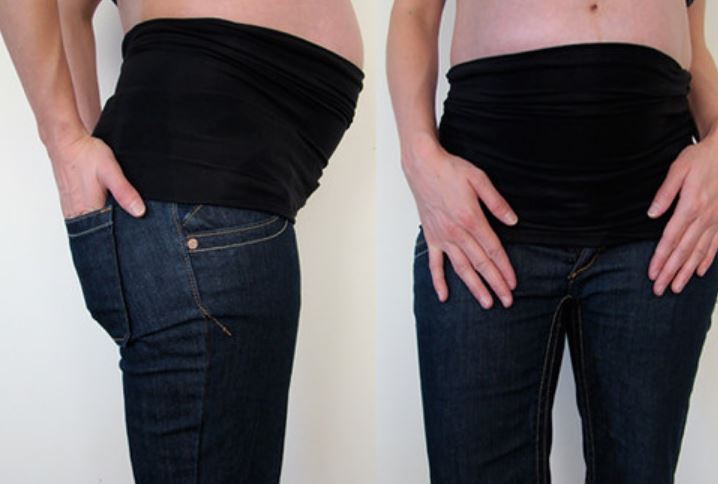 During pregnancy, the weight of your bump can put added pressure on your pelvic and back area. This can cause pain and make it difficult to walk or move around.
During pregnancy, the weight of your bump can put added pressure on your pelvic and back area. This can cause pain and make it difficult to walk or move around.
Wearing a pregnancy belly band like the ones you can find at Cradle Me Baby can help reduce these pains and improve your overall comfort and well-being. Learn why a belly band is a must-have for all pregnant women.
Reduce Pain
Pregnancy is a great time for a woman to feel her baby moving, but the aches and pains that often come with it can be frustrating.
Belly bands, or maternity lumbar support garments, can alleviate some common complaints. Physical therapists and midwives often recommend them; many pregnant moms find they help with back and pelvic pain.
Another type of pregnancy pain that a belly band may help with is round ligament pain, usually felt in the second trimester and can happen when the uterus puts pressure on the underlying ligaments. This can cause a dull ache and sharp pain under the belly.
Support Your Posture
As you grow your baby, a belly band can support your posture by reminding you to stand up straight. The extra weight of your growing bump can make you arch your back, which is bad for your spine and overall health.
This is especially true if you work out a lot, as a belly band will help ease the strain on your lower back muscles.
A belly band can also improve your posture by encouraging you to sit up straighter as you get bigger. This can also prevent swayback and reduce the risk of spinal misalignment, which can be very uncomfortable.
It is important to choose the right size for you, so make sure to check your sizing guide and follow the instructions. The right size can prevent pain, discomfort, and stretch marks during pregnancy.
Prevent Stretch Marks
One of the most common side effects of pregnancy is stretch marks. These pinkish streaks appear around the stomach, breasts, and hips due to the rapid weight gain during your pregnancy.
A belly band helps to prevent stretch marks from forming by dispersing the pressure that causes the skin to tear downwards at right angles to your body’s natural skin lines. It also keeps your belly firmly in place to minimize the risk of injury while you’re exercising.
Pregnant women should consider using a stretch mark cream and night cream daily to moisturize their skin and help keep stretch marks from appearing. Some creams also claim to help reduce their appearance, but there is no reliable evidence that they do so.
Keep Your Pants On
Pregnancy is a physically and emotionally taxing period, but it can also be incredibly enjoyable. So many products and clothing are designed to help ease the burden of this time in your life, and a belly band is one of them.
Belly bands are usually a wide, circular strip of fabric (think tube top) that wraps around your midsection to support and keep your pants on. They’re often made of a blend of fibers, such as cotton + spandex or Lycra.
They’re a budget-friendly way to extend the life of your favorite jeans and pants, and they also work as an extra layer of protection during pregnancy and postpartum. They’re especially useful during the first and early second trimesters when your pants are too small to fit your expanding belly.
Keep You Active
During pregnancy, the extra weight of your growing baby bump puts a lot of pressure on your back. This can lead to lower back pain and soreness.
A belly band can help redistribute this weight and ease the strain on your back muscles. It can also improve posture as your center of gravity shifts, making exercise more comfortable.
Many women struggle with low-back pain in the last trimester, especially as they near delivery. A belly band can help relieve back pain, prevent overextension of the lower back and pelvis, and promote proper posture as you get closer to delivery.
Getting regular exercise during your pregnancy has a positive impact on your health and your baby’s growth. It can decrease hypertension, depression, and diabetes.
